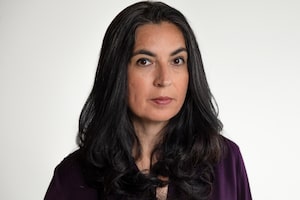You can’t legislate a country to achieve fairness and equity, or pass a law that acts as a magic wand that, once waved, suddenly makes regressive colonization policies disappear.
But you’ve got to give Australia points for trying.
On Oct. 14, Australians will head to the polls in a national referendum to vote on the addition of an Indigenous Voice to Parliament. The ballot asks for a straight “yes” or “no” answer to whether or not people approve of this: “A Proposed Law: to alter the Constitution to recognize the First Peoples of Australia by establishing an Aboriginal and Torres Strait Islander Voice.” If the government-backed “Yes” vote wins a national majority as well as a majority of voters in a majority of states, the new law would reform the constitution, recognizing the First Peoples of Australia and setting up a permanent, multiple-member body to “make representations to the Parliament and the Executive Government on matters relating to Aboriginal and Torres Strait Islander peoples” and to do so pro-actively.
What that all means exactly, remains to be seen. But Australia would not be the first country to try this. In the spring of 2018, while researching my second book, All Our Relations, I joined a group of global Indigenous health professionals for a visit to the Sami Parliament in Karasjok, a city in northern Norway that is home to a majority Sami population. The Sami live across Russia, Finland, Sweden and Norway, and Karasjok, which sits high up in the boreal forest, is where the reindeer roam; the Sami have followed their migratory path, living off and with the animals for thousands of years.
When I first saw the Sami Parliament – a peaked wood structure that resembles a large tipi – I was in awe. Inside the rotunda, 39 elected Sami representatives carried out their duties, which include administrative responsibility and influences in language, culture and education.
Our group, comprised of the Maori and First Nations folks from Canada, the U.S., and Australia, were amazed at this. As our Sami tour guide walked us through the library, he asked us about Canada’s truth and reconciliation commission with interest: Norway’s Sami also experienced assimilative boarding schools, where children lost their language and culture. I remember he was frustrated that Norway’s legislature, not the Sami Parliament, had more power over the process of pursuing truth and reconciliation.
In countries around the world, colonization has meant the violent separation of our peoples from the land and our ways of life, often through oppressive policies of assimilation. Indian residential schools in Canada nearly eradicated us, and as a result, we share many similarities with the Indigenous communities in other countries that had boarding school systems, including high youth-suicide rates, high incarceration rates, and increased rates of poverty. We share the experience of often being outsiders to the ruling political and economic systems. And we share the same question: how do you turn genocide and a legacy of broken treaties around?
One answer is to create something like what Australia is proposing. But if you do that, the body must have more than a performative role. It must have teeth. It cannot just rubber-stamp proposals from the federal government, or give an Indigenous seal of approval.
If the referendum produces a “Yes,” it remains to be seen whether Australia’s “Indigenous Voice” will achieve something more. But at least it is trying. Here in Canada, do we have the guts to start down a similar path – pursuing meaningful constitutional change acknowledging the First Peoples of this land? Section 35 of the Constitution is not a full box of inherent rights, especially when it is interpreted by Ottawa to pit Indigenous people against each other. And since the defeat of the Charlottetown Accord in 1992, this much-needed discussion has been given little air.
Canada’s parliamentary system has failed Indigenous Peoples time and time again. We understand that something has to give. But for that to happen, Canada must be willing to share law and policy-making power – and that’s a large leap from seeing us as wards of the state. We must be treated as equal partners – this is what our ancestors understood when they signed the treaties. What people would have otherwise knowingly given up all their land, their children, language and ways of life to foreign occupiers?
It is time for Canada to think differently, recognize the truth staring at it in the face, and live up to its promises of meaningful reconciliation. Australia and Norway have proven they’re at least willing to start down that path. Why don’t we?
 Tanya Talaga
Tanya Talaga